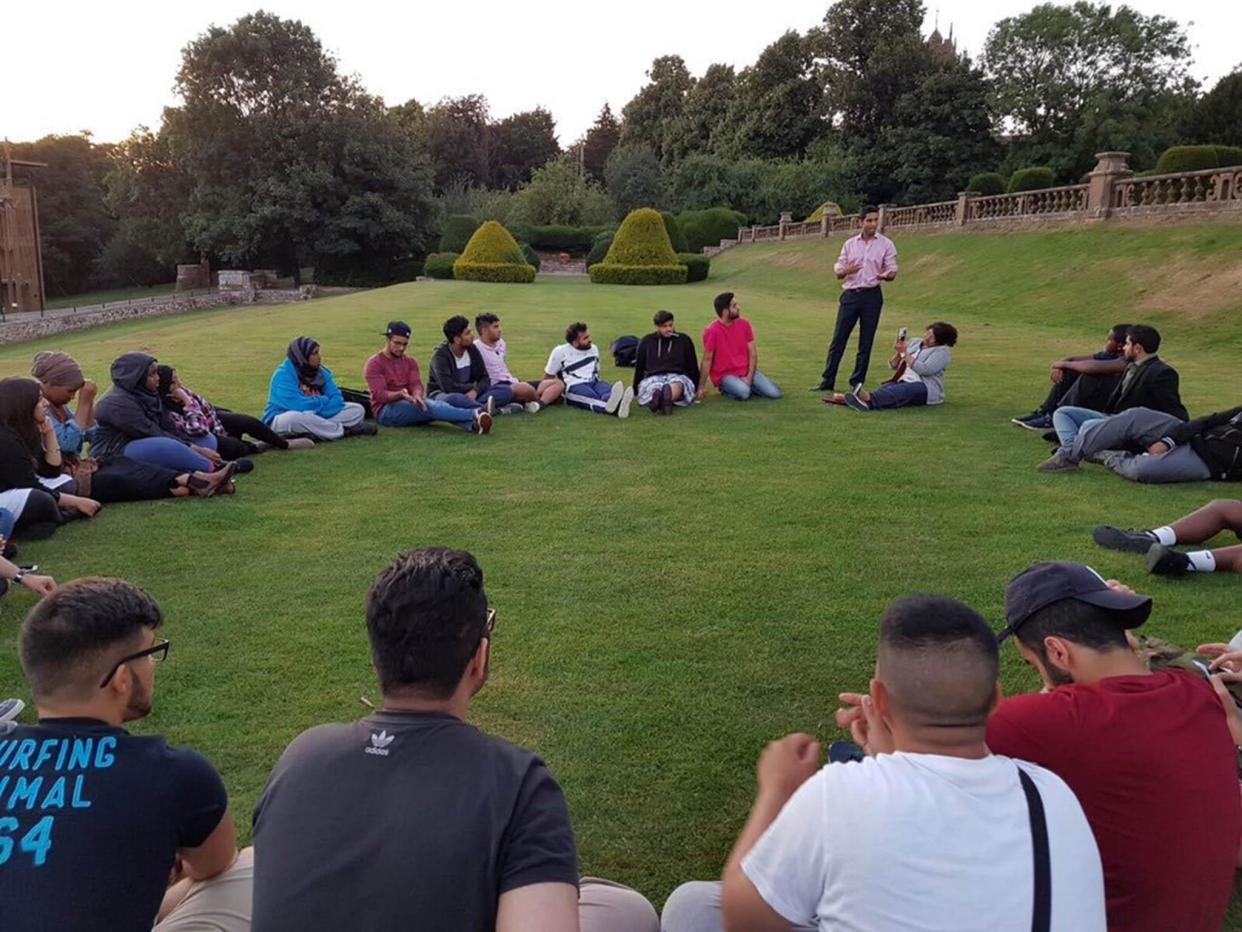If we asked young British Muslims what they think about extremism, we might actually be able to tackle the issue

Just this week we saw another young British Muslim, 22-year-old Salman Abedi disgracefully murdering young children, those of whom were his own peers, in an arena in Manchester.
This is not the first time that young people have turned to violence and terrorism. Whether it has been 17-year old Talha Asmal in Dewsbury or the young girls from Bethnal Green who, unbeknown to their parents and peers, concocted a plan to join Isis in Syria. It has all been seen before: “loving, kind, caring” teenagers who all of a sudden become murderers and members of a death cult. Young people that, in the end, vowed to evil methods to express their grievances.
Yet, how many ordinary young British Muslims have we consulted about this issue? Have their voices really been heard on this issue that primarily affects them? Of course, many of those groomed by radicalisation have accepted an ideological pathway that pits themselves against the rest, no matter how inhumane it might be. But could Salman Abedi’s Libyan heritage have been a grievance, caused by a failed British intervention destroying Libya and leaving a power vacuum filled by extremists, as claimed by one of his friends on Radio 4? Could an open dialogue have prevented such a drastic conversion?
We too easily ready accept ideology as a factor in radicalisation, whilst not accepting that grievances caused by our foreign adventures may be a significant factor? All in all, the reality is the issue of terrorism will not go away, as long as young people are ignored and their opinion is not consulted on this matter. Finding out how they feel and view the world is essential.
Where we have looked into grievances of young Muslims, we have fallen short in empowering ordinary grassroots voices to lead the conversations. Many of those connections with young people have been held by those generations older or from the spectrum of extremism, as opposed to coming directly from the mouths of the youth.
On a grassroots level, we have seen £387m cut from essential funding for youth services across the country in the last 6 years. Youth services that help children to build teamwork skills, integrate with other cultures and spend time with people of a similar age outside of their school and families. We also have soaring levels of mental health issues amongst young people in the UK. Depression alone has seen a 70 per cent increase amongst young people in the last 25 years. Suicide rates amongst young males continue to be prevalent. We now live in a social media age, where the social pressures, norms and attention is constant and continuous. The issues are endless, and they are not being addressed.
In addition to this, young British Muslims face the added pressure of living in the age of the “War on Terror”. For many young Muslims, whether it is in school classrooms or in the media, listening to Islamic references followed by explosion sounds has become a norm. Applying for a job and knowing the fact that you may not get the job because of your name is commonplace – young British Muslims face the highest levels of discrimination in the job market and this has led many to become the forgotten voices within our society.
The reality is, ordinary young British Muslims have been the voices against extremism, because no one has bothered to ask them what they think. Much of the great work that they have done has often gone unheard. They are facing the usual pressures that teenagers face in the UK with the added issue of Islamophobia and the many prejudices that come with that.
They have been active voices challenging the extremist narratives propagating a perversion of their faith – while also fighting the plight of the far-right.
Young people are vocal on social media about their opposition to terror – but still they are accused of staying quiet and not doing enough to tackle the issue within their community. They are stuck between a rock and a hard place – say nothing and be accused of complicity, or be vocal and attract a barrage of Islamophobic hate and accusations of “not doing enough” to stop their fellow Muslims – most of the time people that they don’t even know. It’s like blaming a young Muslim in the North East for not stopping the extremist actions of another young Muslim man on the other side of the country – it is nonsensical. The last census recorded the UK Muslim population at 2,660,116 – people need to get it into their heads that not every Muslim in the country knows eachother.
There is a glass ceiling in society, which young people in this country look upon. Young people, have and are the forgotten voices within our societies, regardless of race, religion or gender. But adding to all this, the troubles of young British Muslims has led to an acute minority acting in a devastating way, as we have seen this week. The victims of these attacks, our children, are not collateral damage and so we don’t have luxury of continuously getting this wrong. Thus, we must ask ourselves – how much longer can we ignore these forgotten voices?
Muhbeen Hussain is the founder of British Muslim Youth

 Yahoo News
Yahoo News 
